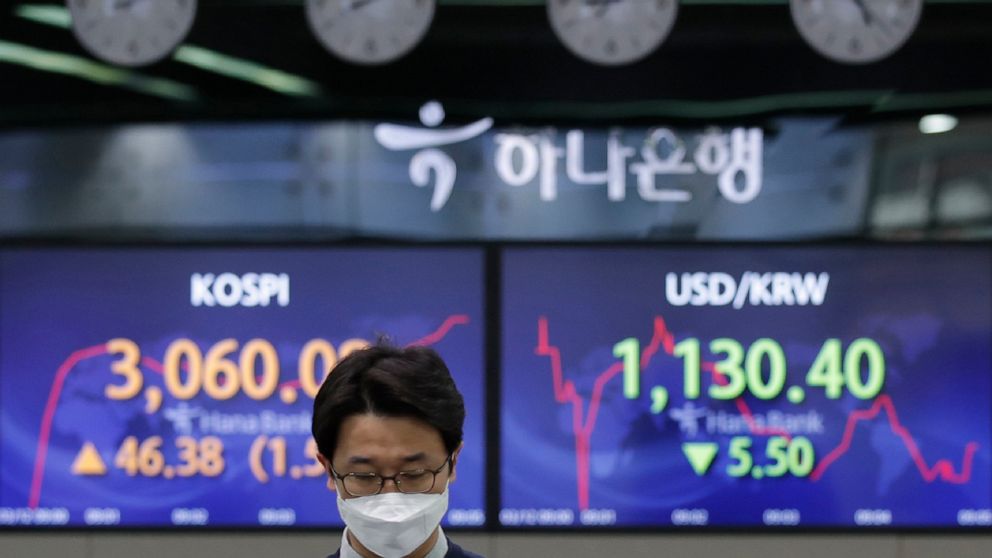Tech stocks pulls market lower as bond yields climb again
Stocks were mostly lower in afternoon trading Friday as technology stocks, which had spent most of the week holding steady or climbing, fell broadly
BANGKOK — Stocks were mostly lower in afternoon trading Friday as technology stocks, which had spent most of the week holding steady or climbing, fell broadly. The move was once again caused by a rise in bond yields.
The S&P 500 index was down 0.3% as of 12:51 p.m. Eastern. The Dow Jones Industrial Average was up 169 points, or 0.5% to 32,654, lifted by industrial stocks like Boeing and Caterpillar. The technology-heavy Nasdaq was down 1.1%.
Even with the modest losses, all three indexes are on pace end the week up 2% or more.
It was the usual cast of characters in technology who were moving lower on Friday. Apple was down 1.1%, Facebook was down 2.4%, Google’s parent company fell 2.7% and Microsoft lost 1%. These big technology companies soared last year as investors bet that pandemic-quarantined Americans would spend even more time online. But as the pandemic eases this year, and bond yields rise, more expensive stocks such as these have struggled.
The bond market was the dominant force in pushing stocks mostly downward. After remaining stable for most of the week, the yield on the 10-year Treasury note jumped to 1.63% from 1.52% a day earlier. Investors had sold off stocks late last week after that yield crossed above the 1.60% mark.
“Bond investors are trying to determine how much future growth is in the economy and what that means for inflation,” said Chris Zaccarelli, chief investment officer for Independent Advisor Alliance. “It could be over the course of this year or the next couple in terms of trying to find the right level.”
The increase in bond yields comes as President Joe Biden signed into law the $1.9 trillion stimulus plan, which will include $1,400 checks for most Americans as well as additional payments for those with children or those who collected unemployment benefits last year. President Biden also laid out a plan, in a primetime speech Thursday, to expand vaccine eligibility to all Americans by May 1.
These moves have given investors confidence that the U.S. and global economy will likely experience a strong recovery in the second half of the year as well as potentially increase the rate of inflation.
Meanwhile, shares of big banks have climbed. Banks are often a proxy for a broader economy, as the ability for borrowers to repay debts matters to banks’ balance sheets and higher interest rates means they can charge more to borrowers. The KBW Bank Index of the 24 largest banks was up 2% in early trading. That index is up 26% just this year.
Investors got another piece of data that showed that American consumers are feeling increasingly confident about returning to normal, and hopefully returning to their old spending habits. The University of Michigan consumer sentiment index for March came in at a reading of 83.0, well above the reading of 80.0 that economists had expected.
![]()


